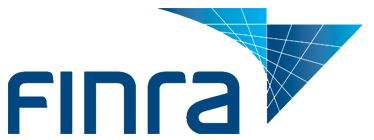List of Brokers with FINRA Regulation
FINRA (Financial Industry Regulatory Authority) is the largest self-regulatory organization in the US that distributes licenses and regulates daily trading to more than 4,500 brokerage firms. The agency is the gateway through which all securities firms must pass in order to do business in the US. FINRA implements regulations to protect investors and ensure markets function fairly, such as enforcing compliance with marketing and margin rules, day-to-day trader requirements and others. FINRA is also responsible for membership registration, certification and arbitration.

| Established | : | 2007 |
| Country | : | United States |
| Website | : | https://www.finra.org/#/ |
| Total Brokers | : | 2 |
Scroll for more details
FAQ
What does FINRA regulated mean?
Being regulated by FINRA (Financial Industry Regulatory Authority, Inc.) means operating under the standards of a US financial regulator. It is a self-regulatory organization (SRO) founded in 2007 as a consolidation of the member regulation, enforcement, and arbitration operations of the New York Stock Exchange, NYSE Regulation, Inc., and NASD (National Association of Securities Dealers Inc.).
Brokers operating under FINRA's regulation are expected to appear for the qualifying exams that aim to test their capability in selling a wide range of products in securities, insurance, and annuities. Brokers that can qualify with higher grades without misrepresenting any facts and ensuring fair competition will be awarded valid certificates.
Another FINRA's rule is for the brokers to clearly state the risks of financial markets and their products. It is also the duty of a broker to inform clients about the potential losses in investing.
What is the main purpose of FINRA?
To protect investors by helping the sustainability of United States securities industry in a fair and honest manner. FINRA could provide regulatory oversight over all public securities firms. The institutuion gives licenses and admits firms to the industry, writes rules to govern their behavior, examines them for regulatory compliance, and is sanctioned by the SEC to ensure that its member firms comply with federal securities laws and FINRA's rules.
Furthermore, FINRA could provide professional training and licensing, arbitration and mediation, as well as market regulation by contract for the New York Stock Exchange, the NASDAQ Stock Market, Inc., the American Stock Exchange LLC, and the International Securities Exchange, LLC. FINRA also helps to educate and arranges examinations to industry professionals.
FINRA has the authority to conduct regulatory exams of its member firms periodically. In fact, its annual Regulatory and Examinations Priorities Letter could largely impact broker-dealers and their affiliated companies.
Although entirely independent of any Government agency, FINRA works according to the guidelines issued by the SEC. It can work with the SEC and the US Congress to create new laws, amend existing policies, and implement regulations.
FINRA operates out of funds collected from membership fees and fines. Since its establishment, FINRA has managed to collect more than $200 million in fines and restitutions.
The agency is highly involved in the investigations of financial scams and other misconducts. It has the right to invoke any licenses of a member who is found violating FINRA's policies.
If you are interested to open an account in one of the brokers in the list above, make sure to try the forex demo account before proceeding to register in the live account.
Additional FAQ
How is the forex regulation in South Africa?
African countries are forex-friendly, but naturally, there are minor restrictions from the government. Forex brokers must hold a license before running their business in any of these countries. The status of forex trading in these countries is still unclear; it is not yet legalized but not against the law.
The South African Financial Sector Conduct Authority (FSCA), previously known as Financial Services Board (FSB), is one of the most well-known forex regulatory bodies.
Continue Reading at Is Forex Trading Legal in Africa?
What are the forex regulaors in UAE?
Official regulators in the UAE are as follows:
- The Dubai Financial Services Authority (DFSA)
- The Abu Dhabi Global Market (ADGM)
- The Securities Commission Authority (SCA)
- Central Bank of the United Arab Emirates (CBUAE)
It is important to understand that the UAE is divided into two financial areas, namely the Mainland and Free Zones. Brokers who operate in the Mainland are regulated by the SCA or CBUAE. Meanwhile, DFSA and ADGM regulate brokers in the Free Zones, which are designated to encourage foreign investments and allow foreign-owned companies to be located.
Continue Reading at Best Forex Brokers in United Arab Emirates (UAE)
What are the regulations for online forex trading in Nigeria?
When it comes to online trading regulation, the ambiguity of laws in Nigeria contrasts with other African countries that have already implemented regulations. For example, South Africa's Financial Sector Conduct Authority (FSCA) and Kenya's Capital Markets Authority (CMA) have already regulated online forex brokers in their countries. Furthermore, South Africa has even established rules for forex trading taxation.
Continue Reading at Is It Safe to Trade Forex in Nigeria?
What should we do if the broker's regulation is still "in process"?
Some brokers might claim that they are in the process of applying for a license or a license extension. But in reality, not all brokers are true to their words. Some of them don't actually apply for any license and only use those words to steal the clients' funds. Even if the license is indeed "in the process", the broker's still unregulated during that time.
Continue Reading at Forex Regulation Insights: Defining Your Broker's Status
Broker Categories
Minimun Deposit
Payment
Country
Established
Instruments Traded
Features
Trading Platform



